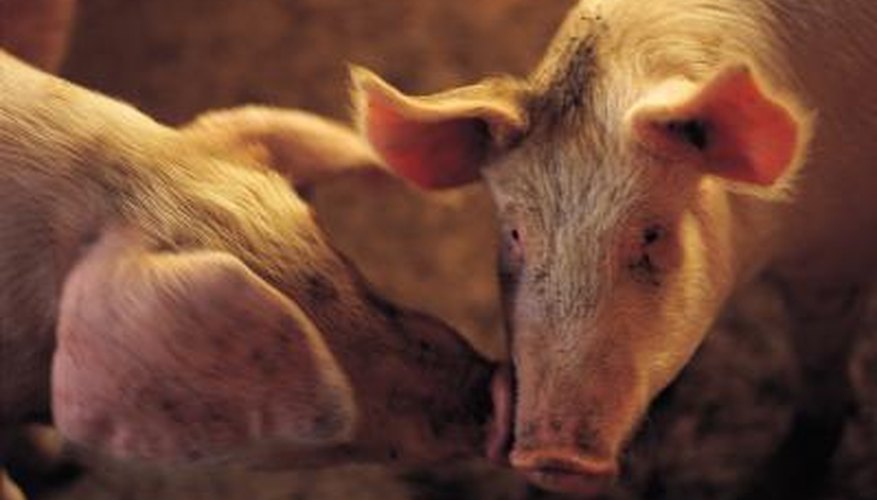
Hog calling is the ability to successfully imitate the sounds made by hogs. Hog calling can serve a purpose in the call of swine to dinner (or, in the case of Arkansas Razorbacks fans, showing support for their home team) but it is usually only performed recreationally. Periodically, certain events, particularly county fairs in regions known for the raising of pigs, will hold hog calling contest, in which a panel of judges rates contestants on their mimicry ability. While fairly free-form, these contests do usually have certain rules.
Time Limit
Contestants are generally given only a set amount of time in which to make their hog calls. The time allowed varies: while 30 seconds is a standard length, some county fairs allow longer intervals. For those contests without time limits, the duration of the call can itself be a quality upon which the contestants will be judged, with loud calls of sustained duration rewarded with more points.
Creativity
One of the primary criteria upon which contestants are judged is creativity. While the contestant should seek to render a precise imitation of the hog's call, the exact type of cry is left to the entrant's discretion. According to The Hog Book by William Hedgepeth, the most common call is "SOOO-o-oeeyyy," but in parts of the lower Midwest "Who-o-eyyy" is a common variant. It should be noted that while certain contests champion extra-vocal creativity, such as the wearing of costumes and the bearing of props, other contests frown upon such accessorizing.
Loudness and Clarity
In a shift from hog calling's origins, most competitive hog calling is now amplified with the use of a microphone. However, contestants are still judged on their ability to enunciate their calls clearly and loudly. Ideally, no matter the size of the crowd or the location of the contest the hog calling champion should make the use of a microphone effectively redundant. As Hedgepeth says, "the call must be strong enough to be discernible to the hog from behind a bush across a 40-acre clover field."
Audience Excitement
There are two schools of thought on the effect that audience reaction should have upon the judges' rating of a particular contestant. In the first, the reaction of the audience is incidental and has no effect on the contestant's score. In the second, the excitement of the audience weighs heavily on the contestant's score.
Eligibility
Most contests divide contestants by age groups, with children entering into one event and adults another. However, certain contests mix all contestants into one competition.
References
Writer Bio
Michael Wolfe has been writing and editing since 2005, with a background including both business and creative writing. He has worked as a reporter for a community newspaper in New York City and a federal policy newsletter in Washington, D.C. Wolfe holds a B.A. in art history and is a resident of Brooklyn, N.Y.



